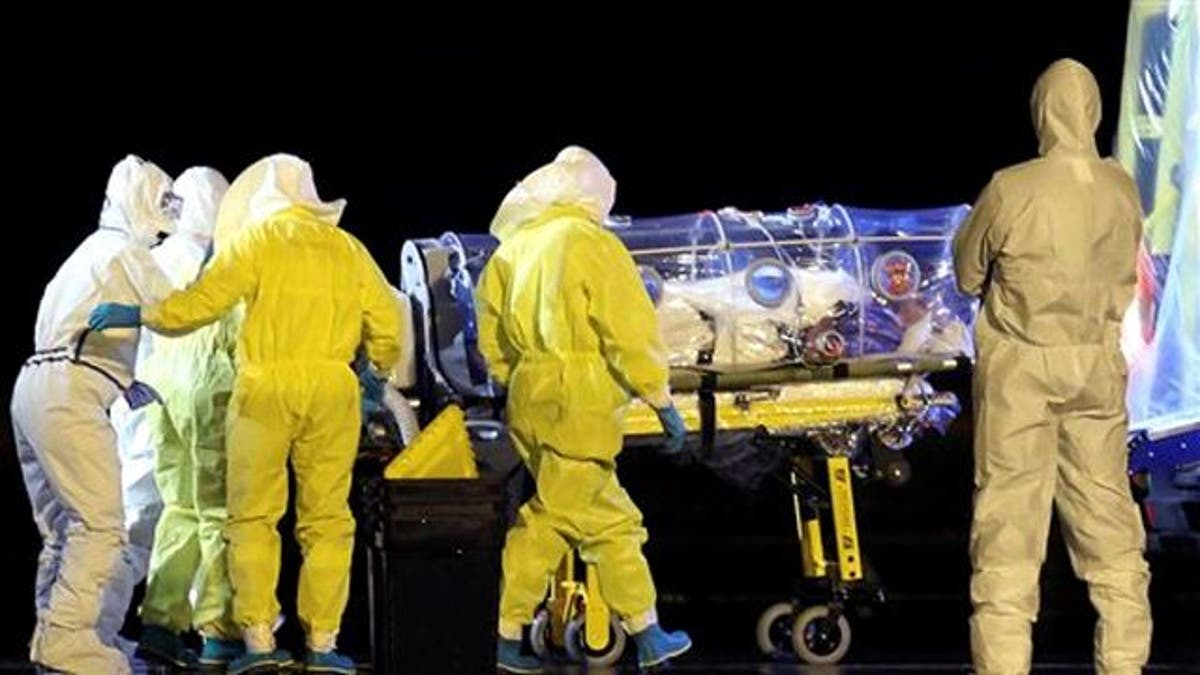
Spain will ramp up training for health workers and emergency services dealing with Ebola cases, authorities said on Monday, as a nurse who caught the virus in Madrid after caring for infected patients remained seriously ill.
Recriminations are flying in Spain over whether hospitals were well enough prepared to deal with Ebola cases, after 44-year-old Teresa Romero last week became the first person in the current outbreak to catch the deadly virus outside Africa.
A broader training program is being developed, said healthcare academic Fernando Rodriguez Artalejo, who is part of a scientific committee advising the government.
"(It is for) doctors, nurses, nursing aides, security staff... police, firemen, anyone who has something to bring to the fight against this health problem," Rodriguez Artalejo told a news conference.
Romero's condition was still very serious and had not changed on Monday, he said, after officials on Sunday said there were smalls signs of improvement.
The Spanish government has defended its handling of the outbreak after coming under fire for reacting slowly, amid claims from unions that health staff received insufficient training and equipment to deal with the disease.
In the United States, where a Texas health worker has contracted the disease after treating an infected patient who traveled from Liberia, the spotlight has also fallen on how medical guidelines could have been breached.
Foreign Minister Jose Manuel Garcia-Margallo on Monday insisted Spain was right to have repatriated two priests who caught the disease in West Africa, and who later died. Romero had cared for the priests in Madrid.
"This is what all developed countries which have had this problem have done," he told El Pais newspaper.
The latest Ebola outbreak has killed over 4,000 people, mostly in West Africa, though it is now spreading elsewhere.
Rodriguez Artalejo said there should not be cause for alarm in Spain, which had the means to fight Ebola, and denied the training revamp was a reaction to criticism.
"It is perfectly possible to control this outbreak," he said, adding the virus was not easily transmitted.
CRAMPED CHANGING ROOM
Some Spanish health worker unions want authorities to investigate whether the Carlos III hospital where the priests were treated broke labor laws. The nursing aides' union SAE said on Monday it had filed a complaint with Madrid public prosecutors, over failings in workplace safety.
Health authorities have rejected claims that the protective suits used by those caring for Ebola patients were inadequate.
The European Center for Disease Prevention and Control, which inspected the hospital where Romero is being treated, concluded that measures there were of a very high quality.
But they found that a special room used by staff to remove protective suits was too small, according to Fernando Simon, health ministry emergencies coordinator. "Staff will very soon be able to get changed in a wider place," he said on Sunday.
One doctor treating Romero has said that she thinks she may have caught the virus by touching her face with her protective gloves, possibly when taking off her suit, although authorities have yet to pinpoint exactly how the transmission happened.
Fifteen people - including Romero's husband, several nurses, doctors and hairdressers who came into contact with her as well as a cleaner and hospital porter - are under observation in an isolated ward. None have yet shown symptoms of the disease.
